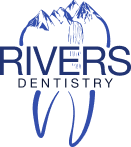- About
- Services
- clear aligner treatment
- cosmetic dentistry
- dental crowns
- dental EXAM
- dental fillings
- dental implants
- dentures
- emergency dentistry
- emergency extraction
- family dentistry
- full mouth reconstruction
- general dentistry
- iv dental sedation
- oral surgery
- orthodontics
- periodontal treatment
- root canal
- same day crowns
- sedation dentistry
- Sleep Apnea Appliances
- teeth whitening
- wisdom tooth removal
- TECHNOLOGY
- New Patients
- Reviews
- Blog
- Contact
- About
- Services
- clear aligner treatment
- cosmetic dentistry
- dental crowns
- dental EXAM
- dental fillings
- dental implants
- dentures
- emergency dentistry
- emergency extraction
- family dentistry
- full mouth reconstruction
- general dentistry
- iv dental sedation
- oral surgery
- orthodontics
- periodontal treatment
- root canal
- same day crowns
- sedation dentistry
- Sleep Apnea Appliances
- teeth whitening
- wisdom tooth removal
- TECHNOLOGY
- New Patients
- Reviews
- Blog
- Contact
-
- About
- Services
- clear aligner treatment
- cosmetic dentistry
- dental crowns
- dental EXAM
- dental fillings
- dental implants
- dentures
- emergency dentistry
- emergency extraction
- family dentistry
- full mouth reconstruction
- general dentistry
- iv dental sedation
- oral surgery
- orthodontics
- periodontal treatment
- root canal
- same day crowns
- sedation dentistry
- Sleep Apnea Appliances
- teeth whitening
- wisdom tooth removal
- TECHNOLOGY
- New Patients
- Reviews
- Blog
- Contact









